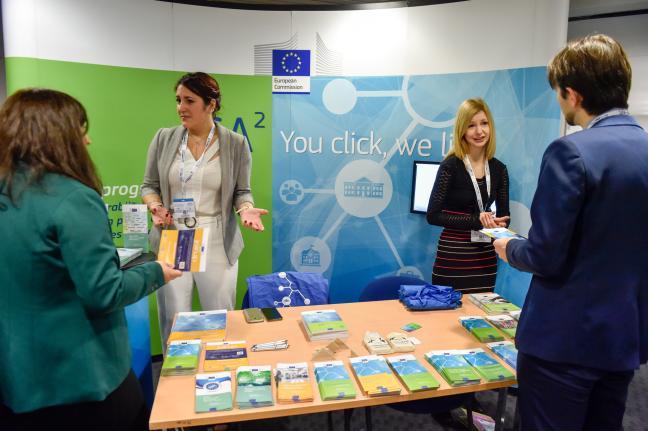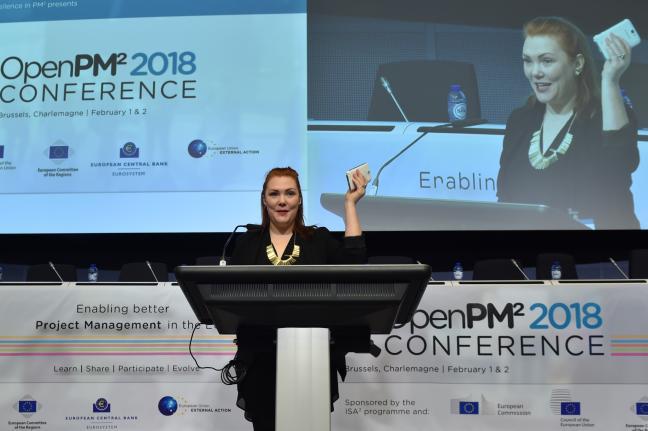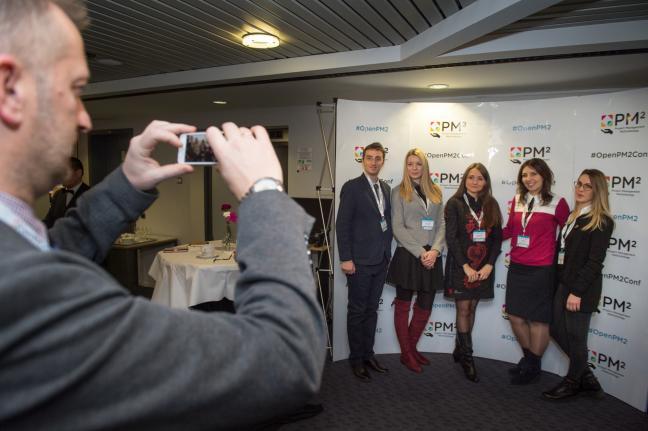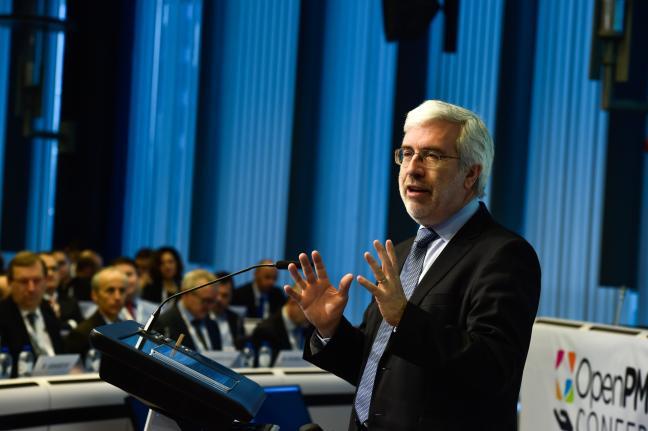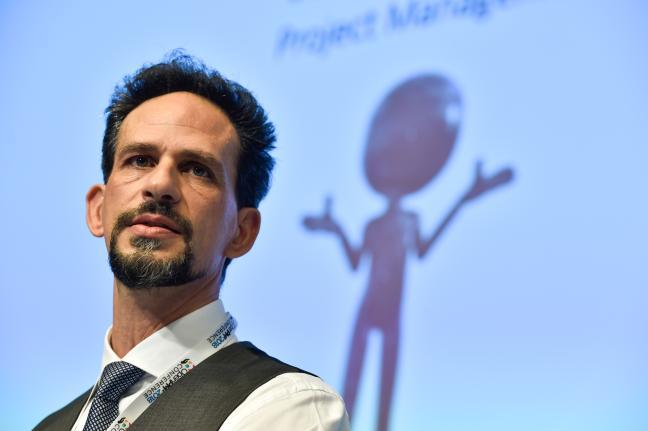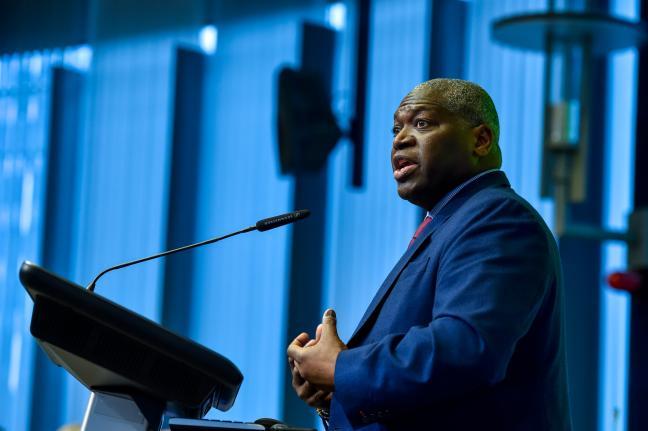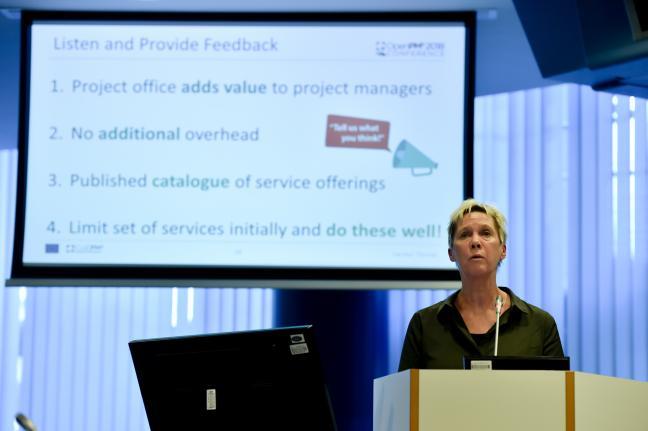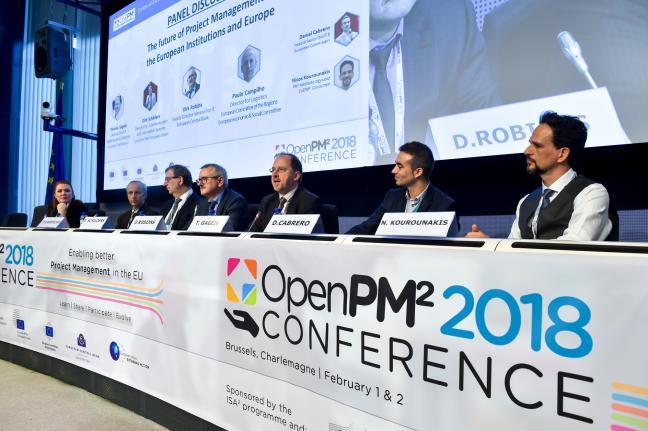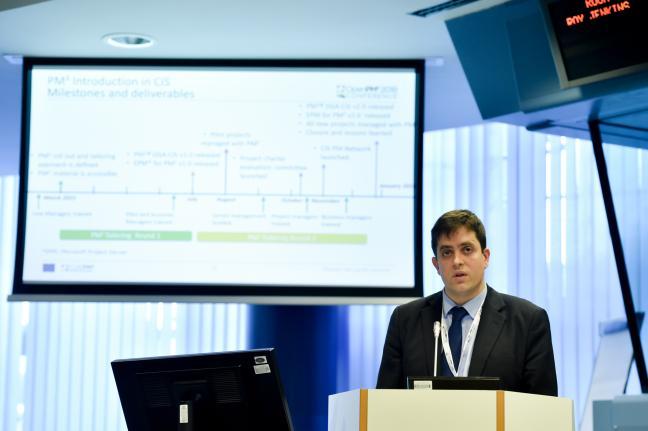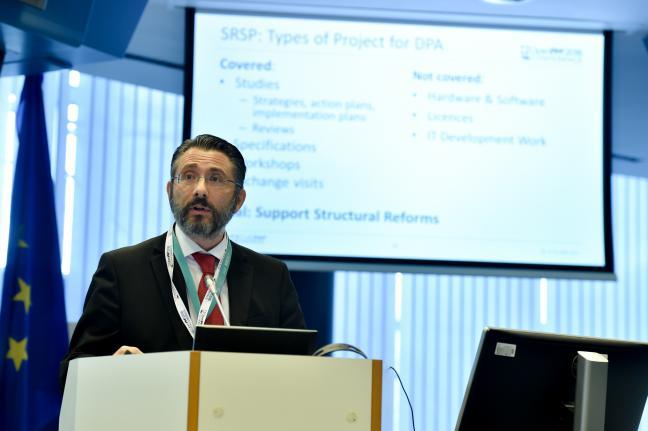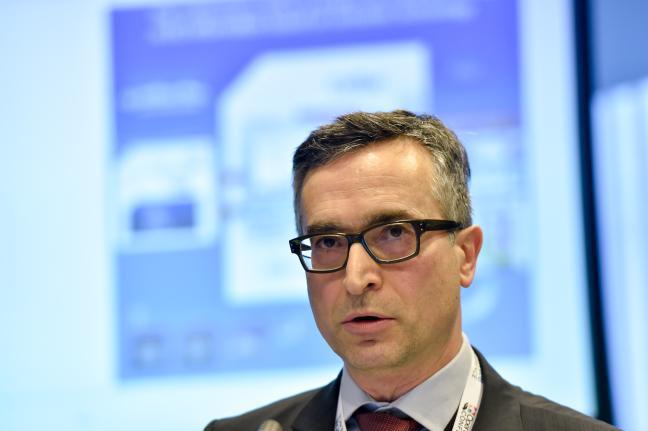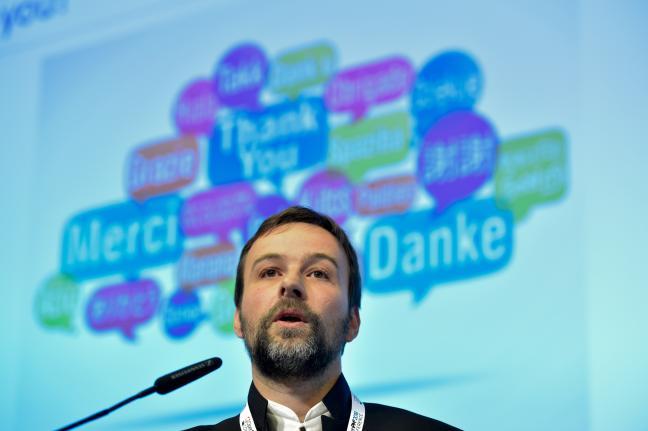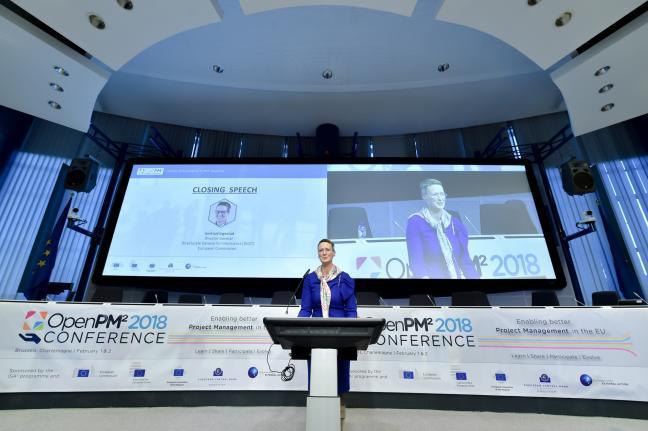Held in Brussels, the Open PM² Conference 2018 brought together project management professionals from across Europe to share experiences, exchange knowledge, and explore the benefits of adopting a common project management language across EU institutions and beyond.
In this page you will find the resources from the event, including presentation slides and speaker biographies. The available materials offer valuable insights into the practical application of PM² and the evolving landscape of public sector project management. This archive remains a useful reference point for those looking to deepen their understanding in the history of PM², revisit the presentations and discussions from the event, or introduce the methodology within their own organisations.
Conference Agenda
Day 1
| 8.30-9.15 | Registration, Coffee and visit of information stands |
|---|---|
| 9:30-10:00 | Conference Opening Mario Campolargo, Deputy Director-General of the DO for Informatics |
| 10:00-10:40 | The Open PM² Initiative Nicos Kourounakis, MASc, MBA, PMP, PRINCE2, IPMA-D, PM² |
| 10:40-11:20 | How to Escape the Stakeholder Management Maze Bryan Barrow |
| 11:20-12:30 | The Future of Project Management Panel of Directors: Dirk SCHILDERS (Council), Thomas GAGEIK (EC), Paulo CAMPILHO (CoR), Dirk ROHN'S (ECB) |
| 12:30-14:00 | Lunch and Stands visit |
| 14:00-16:15 | Parallel Conference Tracks TRACK 1 - Room De Gasperi, 2nd Floor
TRACK 2 - Room Mansholt, Ground Floor
TRACK 3 - Room Jenkins, Ground Floor
|
| 16:00-16:30 | Coffee break, Networking and Stands visits |
| 16:30-17:15 | Creating Silver Linings: A mindlset for opportunity David Hillson |
| 17:15-17:30 | Closing speech: Enabling better Project Management in the EU Mariya Gabriel, European Commissioner for Digital Economy and Society |
| 17:30-18:45 | Cocktail and Networking |
PM² Training Day Sessions Agenda
Day 2
| 8.00-9.00 | Registration and coffee |
|---|---|
| 9:00-11:00 | Parallel Training Tracks TRACK 1 - Room De Gasperi, 2nd Floor
TRACK 2 - Room Mansholt, Ground Floor
TRACK 3 - Room Jenkins, Ground Floor
|
| 11:00-11:30 | Coffee Break |
| 11:30-12:30 | Parallel Training Tracks TRACK 1 - Room De Gasperi, 2nd Floor
TRACK 2 - Room Mansholt, Ground Floor
TRACK 3 - Room Jenkins, Ground Floor
|
| 12:30-14:00 | Lunch and Stands visits |
| 14:00-16:00 | Parallel Training Tracks TRACK 1 - Room De Gasperi, 2nd Floor
TRACK 2 - Room Mansholt, Ground Floor
TRACK 3 - Room Jenkins, Ground Floor
|
| 16:00-17:30 | Training Day End, Refreshments and Networking |
"We are here today because a strong spirit of collaboration gathered us to learn how the PM² methodology can help improve project management in Europe, increasing therefore the project success.
We are here to help each other to work better together, to build a cross border, cross industry community which uses, supports and develops a common project management methodology for the benefits of all of us.
We are here because we don't want to be just passive recipients of whatever methodology; we actually want to be shapers of this methodology. Playing therefore the central role both in our professional lives and in the future of the European as a common endeavour."
Mario Campolargo, Deputy Director General - DG DIGIT, European Commission
This presentation provided an overview of the basic elements of the PM² Methodology as well as highlight of the past 7 years of work done in developing the methodology, promoting it, supporting the PM² community, and helping to rollout the PM² methodology to major EU Institutions and Organisations. Challenges, lessons learned and success factors were presented.
Project Manager, Programme Manager or Senior Manager are likely to experience situations which have been costly to them and their organisation. This presentation showed how they can spend less time fire-fighting, arguing and dealing with difficult people and more time working collaboratively towards the successful achievement of shared business goals. It showed how to take stakeholders from enraged to engaged in a matter of minutes, how to say no to difficult stakeholders without losing your job, and when to turn on the charm and when to turn up the heat to make people accountable
Panel of European Institutions Directors
- Thomas GAGEIK, Director DIGIT B - Digital Business Solutions, European Commission
- Dirk SCHILDERS, Director DGA CIS, Council of the European Union
- Paulo CAMPILHO, Director for Logistics, European Council of the Regions & European Econimic and Social Committeee
- Dirk ROBIJNS, Deputy Director General for IT, European Central Bank
- Daniel CABRERO, Head of Sector, DIGIT.B4.2
- Nicos KOUROUNAKIS, PM² Methodology Lead, DIGIT.B4.2
The presenter, being the main founding author of the PM² methodology back in 2007, unveiled the early days of PM² and took the audience through the PM² journey. Although PM² started as a small assignment to address an operational need, it was very quickly turned into an organization-wide initiative with a multi-dimensional organisational impact.
The many specificities of the European Commission projects made this endeavour very challenging considering the numerous stakeholders, the particularities of a public administration and the diversity of staff and projects.This session helped the participants to understand the rationale behind the PM² approach, the original business case, the reasoning and challenges of developing PM², the necessary mechanisms that were put in place, the PM² evolution as well as the important considerations for applying PM² into their project and organization.
This presentation provided an overview of how the PM² Methodology was being implemented at the ECB for IT projects. It highlighted how its value-centric and clear-cut roles and responsibilities, governance model, phasing and PM² mindsets were unique assets working for Europe.
This presentation provided an insight into how the Agile values, principles and practices were brought inside the PM² methodology. The Project lifecycle, the governance model and key roles and artefacts were some of the key topics discussed during this presentation.
The EU Results project aimed at answering a simple and legitimate question: What the European Union does for me, for my country, my city, my community? Building a single repository to host the results of the EC funded projects involved a project team and steering committee spanning 40 Directorates General and conciliating many different ways to describe and understand what a result was.
The speaker explained how PM² helped managing a delicate stakeholder management situation and what the EU Results project turned into.
The traditional view of risk is negative, representing loss, hazard, harm and adverse consequences. But current best-practice risk guidelines and standards include the possibility of "upside risk" or opportunity, i.e. uncertainties that could have a beneficial effect on achieving objectives.
Despite this theory, most applications of the risk process still concentrate on managing threats, and approaches to opportunity management remain patchy and reactive. The tools and techniques available to practitioners seem to focus attention only on the negative side of risk.
This presentation extended the scope of the risk process to include opportunity management explicitly, addressing each phase of the process in turn to identify areas requiring modification. By modifying the process as proposed, management of opportunities could become integral to risk management, giving them equal status with threats, and seeking to manage them proactively in order to achieve the benefits. Risk practitioners claim to believe that uncertainty has both a positive and a negative side – applying the approach outlined in this presentation would enable them to put those claims into practice.
"The added value of adopting the PM² Project Management Methodology goes beyond our projects, it goes beyond our organisations. It is really linked to our shared vision of Europe: a vision of an open, efficient, inclusive European Union that can provide European citizens and businesses with borderless, interoperable, personalised, user-friendly, end-to-end products and services.
So let us come together as a community of Project Managers and Europeans who care and work together to make this goal a reality. Let's contribute together to the future of Europe."
Gertrud Ingestad, Director General - DG DIGIT, European Commission
WiFi4EU was a strategic project initiated by EC President Mr. Juncker to promote access to wireless connectivity in public places, making WiFi available in parks, squares, libraries, public buildings to benefit EU citizens and institutions with a public mission.
The project aimed to deliver a simple and non-bureaucratic procedure for managing a vouchers scheme and included online applications, payments by vouchers and light-touch monitoring requirements.
Wifi4EU was a complex and volatile project where scope, time and budget are stretched to the limit (and sometimes beyond). This presentation provided insights into how to manage effectively such a challenging and political project by applying some of the key Open PM² methodology concepts and collaboration mindsets.
Although there are different globally recognised project management approaches, their objective is the same: to help teams and organisations complete projects successfully. Every approach has different advantages and is more suitable for different types of projects and organisational environments. This presentation examined the benefits of adopting the PM² Methodology across the different EU institutions.
The speaker reported on an ongoing research initiative to develop the first Body of Knowledge (BOK) for the Business Technology Management (BTM) profession. An overview of the BOK architecture was presented, based on an innovative ontology-centric meta-model to enable seamless integration of multiple competency standards.
The speaker explained how Project Management (PM) standards, covering its 4 levels (project, program, portfolio, ecosystem), acted as a binding platform for the BOK architecture, and provided meaningful semantic for integrating operational, strategic, and stakeholder dynamics in BTM practice. A key objective in the BTM BOK project was the integration of Open PM² as the PM standard.
The speaker elaborated on how the standard will be integrated from start within the ontology, meta-model, and architecture. He concluded with an outline of possible impact on Open PM² community and practitioners, as the EC’s initiative could also eventually import valuable artefacts and resources from the BTM BOK.
The presentation focused on the Structural Reform Support Service of the European Commission which was helping Member States implement structural reforms for their administrations in the form of on-the-ground technical support. eGovernment was prominent among the areas of support, covering reforms in the way governments implemented their IT Function (including IT governance and methodologies), how they modernized digital services for their civil servants, how they delivered digital services to citizens and how they led the digital economy, among others.
The ISA² Programme supported the development of digital solutions that enable public administrations, businesses and citizens in Europe to benefit from interoperable cross-border and cross-sector public services. This was crucial for the modernisation and digitalisation of public administrations as stated in the European Interoperability Framework, enshrined in the government Ministerial Declaration signed by the 32 EU Ministers in Tallinn (Estonia) on 6 October 2017.
The presentation focused on the ISA² Programme which had intensively been working in the action "Sharing and Reuse of IT solutions" and also supporting Open PM².
This presentation provided some reflections of how to instutionalize ways of working in an organization. It provided some hints of the characteristics of PM² that made this methodology easy to adopt. The presentation allowed the rest of the speakers to share their experience on rolling-out PM².
This presentations provided an insight into the role of the Project Support Office and how it was aligned to the PM² methodology.
The PSO not only supports the project management community but unites project teams by establishing a solid communication across competency centers or functional boundaries.
In 2015, the PM² methodology was rolled-out as the official Project Management Methodology at the DGA's Communication and Information Systems Directorate of the Council of the EU.
Less than 12 months later, the tailoring and pilot implementation of PM² had been a success. Since then, the PM² methodology was put in practice, all Project Managers were trained and certified in PM², and all new IT projects were initiated and run with the PM² methodology.
The speaker presented the story, the challenges, the lessons learned and the future of PM² at the Council of the EU. He also highlighted Agile, Programme and Portfolio Management practices in the scope of the PM² methodology.
The EU Publications Office (OP) had undergone significant changes in the past when it transformed itself from paper to electronic publishing house. Its culture had been traditionally focused on operational excellence. However, as OP outsourced many operational tasks, an ever-increasing portion of OP's processes and business activities were of a project nature.
In this journey to the new era for OP, the Director General approved a set of strategic objectives for the period of 2017-2025. These goals included both significant IT developments as well as business process changes. Given the inter-institutional character of OP, a large number of stakeholders from multiple EU institutions were involved.
The delivery of these strategic objectives was organised into several programmes with over 100 projects to be executed. The Publications Office chose PM² as the corporate methodology to manage these projects. The presentation outlined the approach taken to gradually turn the Publications Office into a more project-oriented organisation by adopting a methodology and shifting the corporate culture.
This was an introductory training which offered an overview of the PM² Project Management Methodology: the governance model, the project roles and responsibilities, the mindsets, the lifecycle, the processes, best practices, and the key PM² project artefacts.
After completing this introductory training, participants were familiarised with the elements of PM², appreciated its value, and were able to start using some of the basic best practices and artefacts.
9:00 - 10:00 Room De Gasperi: Slides
9:00 - 10:00 Room Mansholt: Slides
9:00 - 10:00 Room Jenkins: Slides
The PM² Methodology processes, artefacts, tools and techniques help project teams take decisions on trade-offs between the project dimensions of time, cost, scope and quality. On the other hand, the PM² Mindsets present those attitudes and behaviours which help project teams focus on what is really important in achieving project goals. Together they help with navigating through the complexities of managing projects and make the PM² Methodology both more effective and complete.
The training showed how the PM² Mindsets become the glue that holds together the PM² processes and practices, and provide a common set of beliefs and values for all PM² practitioners.
14:00 - 15:00 Room De Gasperi: Slides
11:30 - 12:30 Room Mansholt: Slides
14:00 - 15:00 Room Jenkins: Slides
Projects depend on people to define, plan and execute them. But who is supposed to do what, and how do we avoid overlaps or gaps in project management responsibilities?
The PM² Governance model provides a clear structure for the effective management of PM² projects. This training explained the roles and responsibilites for those involved in a PM² project, organised and presented in layers: Governing, Steering, Directing, Managing and Performing. Simple RAM/RASCI tables clarified the exact responsibility of each role for every project activity described in the PM² Methodology.
10:00 - 11:00 Room De Gasperi: Slides
10:00 - 11:00 Room Mansholt: Slides
11:30 - 12:30 Room Jenkins: Slides
This training provided participants with an overview of Risk Management as a systematic, iterative approach which included risk identification, response planning and management. The training focused on the basic PM² Risk Management Process, the PM² Risk Management Plan and Risk Log, and presented some basic techniques for risk identification and management.
11:30 - 12:30 Room De Gasperi: Slides
14:00 - 15:00 Room Mansholt: Slides
10:00 - 11:00 Room Jenkins: Slides
This was an introductory training offering an overview of Agile PM² - the extension to PM² for managing projects with an agile approach. The training presented the Agile PM² Model, the Agile specific roles and responsibilities, the Agile themes and key practices, and the Agile PM² Artefacts, and connected them to the overall PM² Model.
15:00 - 16:00 Room Jenkins: Slides
This training was an introduction to the field of Organizational Change from the perspective and context of Projects and Project Management. It presented an overview of the dynamics and challenges of planning and implementing the organizational changes required to ensure that project deliverables are successfully integrated into the Organization's environment.
15:00 - 16:00 Room De Gasperi: Slides
Project Portfolio Management (PPM) is about selecting the optimal mix of projects and programmes to align the organisation's investments with the strategy, optimise the organisation's benefits, allocating the adequate resources and regularly collecting accurate and relevant information to support portfolio decision-making.
PM²-PPM is a Project Portfolio Management Methodology developed by the European Commission. Its purpose is to enable organisations to better manage their (programme and project) portfolios and facilitate the more effective reporting of their performance to Senior Management.
This training provided an overview of the key elements of the PM²-PPM Model: the portfolio governance, the portfolio management processes groups and activities, the PM²-PPM Artefacts and effective Mindsets.
15:00 - 16:00 Room Mansholf: Slides
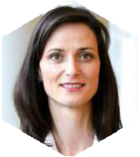 | Mariya Gabriel She's actively involved in the work on the legislative proposals connected with the creation of the Digital Single Market, as well as sponsoring the digital economy and society portfolio of initiatives that aims to:
|
 | Gertrud Ingestad
Her main domain in the Commission has been resources, with a specialisation on people and organisation-related issues, in DGT and DG CONNECT, where she also started working with IT from a digitalisation perspective. In January 2014 she joined DG DIGIT as Director for Information Systems and Interoperability Solutions, now Digital Business Solutions. Since 16 April 2016 she is Director-General of the Directorate-General for Informatics. Her main driving force is constant improvement in collaboration. |
 | Mario Campolargo A Portuguese national, he joined the European Commission in 1990 after 12 years in telecommunications research. He has spent his entire career at the Commission in the area of information and communication technologies' research and policies. Until 2016 he was Director for "Future Networks and Net Futures" at the Commission's department for information and communications technologies (DG CONNECT), managing a staff of 110 people and a portfolio of 250 active projects. Previously he worked DG INFSO (now DG CONNECT) where he was appointed to several managing roles until becoming Director for "Emerging Technologies and Infrastructures" in in charge of Future and Emerging Technologies, ICT based infrastructures for science and ICT trust and security, experimental facilities and experimentally driven research for Future Internet. Mr. Campolargo owns a Degree in Electrical Engineering (University of Coimbra), a Master of Science in Computing Science (Imperial College London), a Post graduate in Management (Solvay Business School Brussels) and a European Studies Diploma (Université Catholique de Louvain-la-Neuve). |
 | Thomas Gageik Thomas Gageik is Director for "Digital Business Solutions" at the European Commission's Directorate-General for Informatics (DG DIGIT). A German national, he joined the Commission in 2017 from the private sector, having worked in the area of IT services since 1988. After majoring in computer science at the university of Aachen (Germany) he gained broad experience in international and global roles at Procter & Gamble, Mars and Scottish & Newcastle; in 2013 and he was appointed CIO and successively Director of Mundipharma IT Services GmbH . Mr. Gageik has always been very passionate employing IT creatively to achieve business goals. Throughout his career, he was involved in several IT transformations to align IT with business needs. |
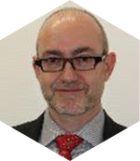 | Tom Vekemans Head of Unit DIGIT B4 - Software Engineering Capabilities |
 | Daniel Cabrero Moreno Daniel Cabrero Moreno is the responsible for the teams in charge of the PM² Methodology and Project Office at the IT Directorate of the European Commission. He spent 15+ years in the field of Project Management and Quality Assurance. He has designed and rolled-out Project Offices at different large scale organizations, supported by the introduction of a wide range of methodologies and management techniques. After his computer engineering degree in the Autónoma University of Madrid, he got his PhD on aligning IT techniques and business value. Later he became MBA in public administration in the IE - Instituto de Empresa. He is also certified in CMMI, ITIL and PMP Session: Hands-on! Tips and tricks for PM² adoption |
 | Bryan Barrow Each year millions of companies blow billions on projects because of poor collaboration and communication, leaving people frustrated and companies liquidated. I show you how you can become brilliant at stakeholder management in as little as 30 days. My talks are full of stories, humour and actionable take-aways, and I’m the author of three books on project management: “Project Definition”, “The Project Planning Workshop Handbook” and “Stakeholder Management”. Session:How to Escape the Stakeholder Management Maze |
 | Marc Berghmans Insightful, solutions-driven executive with 20+ years of success planning and coordinating large-scale projects, programmes, and business process improvements for diverse organisations across financial, telecom, government, and transportation sectors Session:Wifi4EU - Free WiFi for Europeans |
 | Manuel Del Castillo Sanchez Manuel is a Computer Science Engineer that joined the European Commission in 2008, leading and coordinating since then IT projects in areas such as Communication, Environment, Research and Competition. In 2015 he joined the IT Directorate of the Council of the European Union's General Secretariat as Head of Sector, in which his main task has been to set up and run a framework for Project, Programme and Portfolio management. Manuel has strong PPM methodological knowledge as well as interest in digital transformation, digital administration, innovation, corporate governance and enterprise architecture. Session:PM² @ Council - The Rolling-out PM² at the European Council's GS-CIS Directorate |
 | Konstantinos Dryllerakis Kostis Dryllerakis is an IT Manager and technologist working for the European Commission in Brussels. He studied Physics at the University of Athens and theoretical Physics at Imperial College while working as a part-time developer. He went on to obtain a Master's degree in Advanced Information Technology and a PhD in Artificial Intelligence from Imperial College in London engaging in further post-doctoral research in the field. Since 1998, he has been contributing to the digital transformation of the Commission in the areas of IT demand management (governance, portfolio management, etc.), IT supply management (development, maintenance and operation of large scale IT solutions) and IT Architecture while supporting the business transformation of the organisation. Over the years, Kostis has been responsible for both back-office (HR, pay, medical insurance, voting,… ) and front-office (Anti-Fraud, Research grant management, …) IT solutions of the European Commission. He is currently an advisor on Digital Public Administration to the Structural Reform Support Service (SRSS) of the European Commission offering technical support to EU Member States in their Digital transformation journeys. Session: EC's Structural Reform Support Service (SRSS): Actions for eGovernment/Digital Public Administration" |
 | Stephane Gagnon Stéphane Gagnon is Associate Professor in Business Technology Management (BTM) at the Université du Québec en Outaouais (UQO), based in Gatineau, National Capital Region. His research deals with cloud computing and big data analytics, applied to the financial services industry and public administration. Among other projects, he leads a research network to develop the first BTM Body of Knowledge (BOK), in partnership with IT Association of Canada (ITAC). This initiative will lead to the first unified guide for the BTM profession, identifying the common core competencies among several related standards, and ensuring practitioners at all levels can easily identify their best career growth opportunities. Session:Integrating Project Management Standards within Business Technology Management (BTM) |
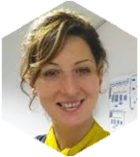 | Rosaria Giovannelli Rosaria Giovannelli, IT Strategy & Development Programme Manager at the Single Resolution Board, MBA, PRINCE 2®, CAPM®, ITIL® , has managed large-scale projects for over 20 years. Rosaria has implemented and managed a Project Management Office at the eu-LISA agency and more recently at the Single Resolution Board, coordinating and supporting a number of high skilled IT project managers Session:Why use PM² as a Project Management Methodology? |
 | David Hillson Known globally as The Risk Doctor, Dr David Hillson is a thought-leader and expert practitioner who speaks and writes widely on risk management. David has a well-deserved reputation as an excellent speaker and presenter on risk. His talks blend thought-leadership with practical application, presented in an accessible style that combines clarity with humour, guided by the Risk Doctor motto: “Understand profoundly so you can explain simply”. David has advised major organisations, governments and charities in fifty countries on how to create value from risk using applied risk-based thinking, and his wisdom and insights are in high demand. David has received many awards for his ground-breaking work in risk management, and he has developed significant innovations that are now widely accepted as best practice. Session:Creating Silver Linings: A mindset for opportunity |
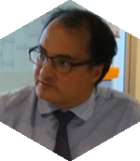 | Jeremías Iglesias Jeremías is establishing the Project Hub at the ECB. A team of dedicated and dynamic staff responsible for facilitating business-IT dialogue, scoping initiatives, planning projects, and working closely in a team of business customers, IT architects, project managers and business analysts. With more than 10 years of experience in project management in the Eurosystem, he understands every project as a unique opportunity to engage customers and service providers in a common endeavour towards positive change. Session:PM² at the ECB: From idea to delivery along the PM² lifecycle |
 | Bert Kips Bert is a senior management consultant specialised in Project, Programme and Portfolio Management methodologies. He leads projects and provides management consultancy to the European Commission and other major EU Institutions in different business domains. He is also a co-author of the PM² and PM²-PPM Guides. Having an engineering background combined with a master degree in Computer Science, Bert holds several certifications in traditional and agile management methodologies. Leveraging the 20 years of management experience in different industries, he helps organisations to translate their business strategy into successful projects while applying a pragmatic and effective approach. Sessions: The PM² Governance Model - Roles & Responsabilities ; PM² Project Portfolio Management |
 | Maarten Koens Maarten has an extensive experience in managing national and international projects in procurement, logistics and supply chain management with a focus on B2B sectors like health care, medical, pharmaceutical and other B2B sectors. Companies he worked for are iSoft, TIE, GS1, GHX Europe, Porthus and Bridgestone, with projects for private and public hospitals, Johnson & Johnson pharmaceuticals and other medical device companies, as well as for Omron Europe. Currently he is providing project management training all over Europe, including PM² trainings for the European Commission and other European institutions. He is a certified Project Management Professional (PMP) by the Project Management Institute (PMI) in 2010, a Prince2 Practitioner by APMG in 2010, and a Professional SCRUM Master (PSM) by scurm.org in 2015. He also holds an ITIL Foundation certificate. He is an experienced project manager, speaker and trainer. He has a degree in information technology engineering. Sessions: An Introduction to PM² ; Managing Organisational Change - The PM² Business Implementation Plan |
 | Nicos Kourounakis Nicos is a Project Management Consultant specializing in Project Management Methodologies and Organizational Project Management Maturity. He is the PM Methodology Lead at the European Commission and Co-Author of the PM², Agile PM² and PM²-PPM Guides. Over the past 7 years, he has also been leading consulting projects with major EU Institutions such as the European Commission, the European Council, the European Central Bank, the European Investment Bank and other EU Agencies. Sessions:The Open PM² Story ; An Introduction to PM² ; The PM² Mindsets ; The PM² Governance Model - Roles & Responsabilities |
 | Laurent Kummer An Engineer in Computer Science with a management degree, Laurent worked in various IT management positions in the public sector and 10 years with General Electric in the Bank/Finance sector, Aviation, Oil & Gas and Energy production manufacturing sites. He is a Lean Six Sigma Blackbelt and Green Belt teacher, accredited by IASSC. He also owns a PMP-PMI certification, is a consultant at European Commission in Brussels, helping them on difficult or delicate projects, and is expert member of ISO Technical Committee in charge of writing the Project Management standards (ISO 21500). Sessions: An Introduction to PM²; Building an EU Results repository |
 | Pierre Leclercq Pierre Leclercq is a member of the COEPM² team, providing training and coaching on methodology development and adoption. Pierre spent 20 years in California, working in the Silicon Valley. He worked at Apple for six years, started a small software outfit he later sold to Digital Equipment, was part of the booming Internet startup landscape, and then joined Belgium’s Economic Development office in San Francisco. He collaborated with Google on the opening of their first European data center. Pierre is the President of the Board of the Microsoft Innovation Centre in Belgium. Pierre graduated as a Computer Science engineer in 1984 (University of Louvain, Belgium). He lives in Seneffe with his wife and his two children. Sessions: The PM² Mindsets ; The PM² Governance Model - Roles & Responsabilities |
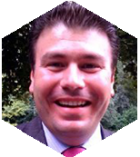 | Sakis Maraslis Educated to B.Eng Honors in Computer Systems Engineering and MSc in Management with a Diploma in Finance, Sakis is a certified professional Project Manager and Chartered Engineer, currently working as Deputy Head of Unit at the European Commission's Directorate-General for Informatics. He has a strong knowledge base on technology, business acumen and methodology as well as deep interest in Digital Administration, Corporate Governance, Customer Relationship Management and Communications. Before joining the EU Institutions, Sakis worked for eight years in private Telecoms, getting deep insight of the solid links between the IT and communications world, and the importance of strong but practical governance in the delivery of ICT projects. Session:The Genesis of PM² - Thinking big but starting small |
 | Tiago Palhoto Tiago is an experienced Agilist, with more than 15 years of experience with Agile methodologies and frameworks, specializing in Scrum and RUP, as also scaling agile at the enterprise level. Tiago is a frequent contributor to the agile community, with frequent publications and as a frequent speaker in several agile related events. He also authored a book on Agile Software development, published in 2016. Tiago is currently working as a Senior Agile Consultant for the European Commission, where he's helping teams succeeding with Agile PM² throughout the several European Institutions. Sessions:Agile PM² - connecting Agile practices to PM² projects ; Agile PM² |
 | Roberto Pappalardo Roberto Pappalardo is the Head of Unit at the Publications Office of the European Union responsible for Enterprise Architecture and Governance. His main task is to align business and IT for successful strategy execution. He has spent the last 25 years working in different IT domains within the European Institutions. Previously, Roberto worked in the field of robotics and artificial vision for the private sector. Session: PM² @ OP - Changing the project management culture to deliver strategic objectives at the EU Publications Office. |
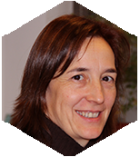 | Natalia Aristimuño Pérez Natalia Aristimuño Pérez is responsible for the Interoperability unit in the Directorate-General of Informatics in the European Commission since March 2017. Before she has been the head of the units delivering solutions on human resources, decision making, document management and knowledge management domains. Since she joined the European Commission in the year 2000, she has always been involved in providing solutions allowing making users' life easier and the institution more efficient. She has an IT background, graduated in Deusto University (Bilbao, Spain) and has a deep knowledge of the business domains she works with. Session: ISA² Programme: Boosting Digital Public Administrations |
 | Carolyn Thomas Carolyn provides pragmatic program management solutions to realize business objectives and bring economic value to the organization. She designs and implements "fit for purpose" solutions based upon organization maturity with a clear evolutionary path towards a strategic end state PMO. Her core expertise revolves program management offices complemented by managing complex large scale programs and project teams (employee, consultant, offshore) to successfully transition from project to operational mode – all in international environments. Throughout her career, Carolyn has gained an in-depth understanding of project management principles, supplier relationship management, bid management and integrated operating models within diverse international industries (including luxury cosmetics, R&D Pharmaceuticals, airline catering solutions, on-board retailing, telecommunications, public sector and automotive sales and marketing). Carolyn has been able to leverage her skills to embed change that sticks. Session:The PM² PSO - A Project Support Office at the Service of Projects |
 | Petre Turliu Petre is running a team of dedicated Project Managers delivering transverse infrastructure and development projects within the Court of Justice of the EU while coordinating with business users and other key stakeholder services. With more than 10 years of experience in Project and Program management, operations and change management, in different countries, private and EU public sector, within highly mature CMMI organizations, he is a status quo challenger and an enabler. Session: Judicial Network of the EU - Takeaways on delivering a complex project in record time |
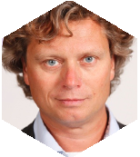 | Ernst Van Dam I am a project manager with over 20 years experience in IT. From infrastructure projects in the Jurassic period of my career via more recent Global Strategic Mobilization Events to the worldwide implementation of a solution for Identity & Access Management at present. Next to my job as project & program manager I have been working as trainer, facilitator and coach. I like to work with people and I get energy from helping others to increase their comfort zone by challenging them to step out of it. I design and deliver courses and other learning formats for project management, consultancy skills and presentation skills. In the past few years I have delivered courses in various parts of the world –from Canada to China and from India to Italy. It is the great diversity in cultures and people that I love and learn from. My core skills are creativity and ability to deliver –left brain and right brain so to speak, a sound mix for a successful course, workshop or event. Sessions: The PM² Mindsets ; Managing Risk |
 | Lex Van der Helm Helping people and organizations improve in the way they prepare themselves for the future through change. In my long year I have seen many projects fail (to deliver). Helping people cope with change. Handing them tools to better deal with change or manage the projects that help bring change. Assessing the professionalism of both individuals and organization in their maturity in dealing with change as a basis for personal or professional growth. Participating in the development of ISO standards for project portfolio management. All different ways in which I try to contribute to better projects and more effective change. This means I spend my time consulting with organizations on improving their project performance, doing assessments using tools like P3M3 or OPM3, and delivering both standard training courses and bespoke learning events about subjects such as Organizational Change Management, Project Portfolio Management, Benefit Management, Risk Management, Project Management. Session: Managing Risk |
 | Elias Michelioudakis Seasoned Project/Program manager – PM², Agile@EC, Prince II, Lean 6 Sigma – primarily in software development (off/near/on-shoring) & implementation. Strong track record of driving customer focused technology-cantered business change by leading teams directly & in matrix organization. 25+ years in multi-cultural environments with particular focus in Finance (Order to Cash, Accounting, Procurement to Pay) & Electronic Commerce/Customer Interface domains. Leadership/consultancy experience in various program related areas such as: PMO, BPO, and business IT strategy formulation and implementation. Sound understanding of Transportation/Logistics industry. Worked also in Agriculture, Services, ICT industries & Governmental organizations. Over the past one and a half years is working in consultancy missions and projects within the European commission (DG DIGIT and other DGs/institutions – CoEPM²) |
 | Ionut Aionitoaei Ionut is an IT specialist with broad knowledge and experience in the field of IT. He holds a Bachelor of Science in Computer Science from Al. I. Cuza in Iasi-Romania, a Masters in Project Management from SNSPA Bucharest-Romania, and a Masters in IT Management from Solvay University in Brussels-Belgium. Ionut worked in the GovITHub programme within the Romanian Prime-minister's Chancellery . For the last 7 years he has been working at the European Institutions in the field of IT. He is currently working as an IT Project Officer within DG HR. |
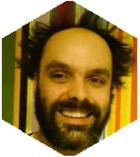 | Pablo Crespo |
 | Alexandra Michotte |
 | Priscilla Pereira |



